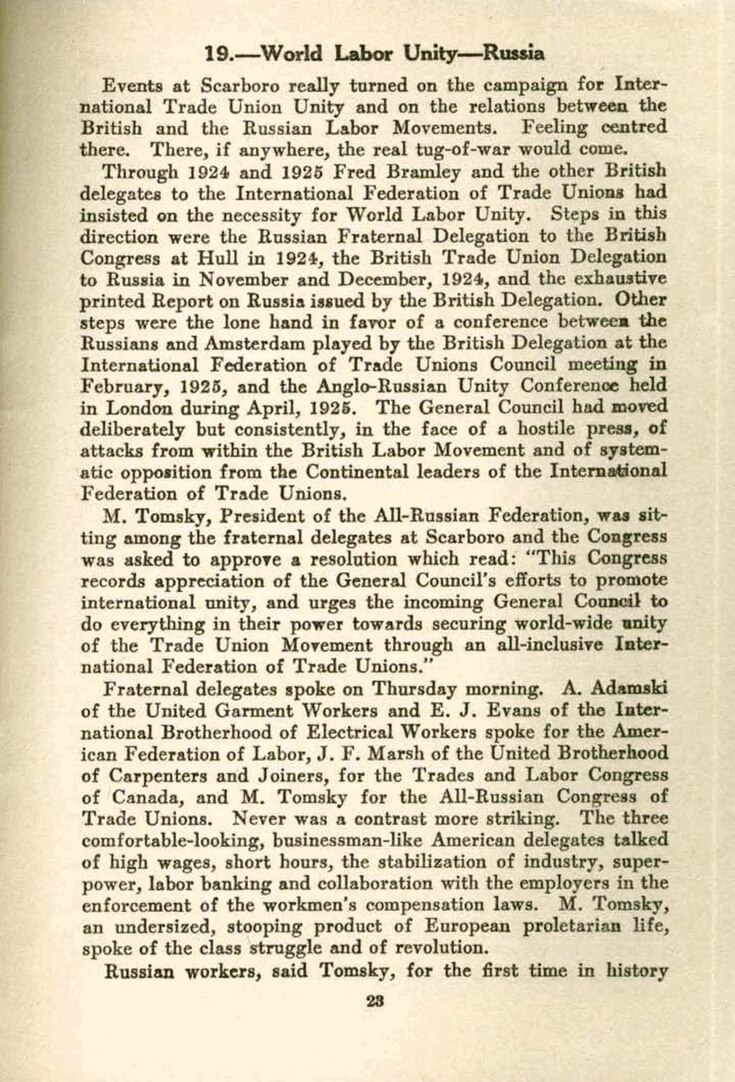19.—World Labor Unity—Russia
Events at Scarboro really turned on the campaign for International Trade Union Unity and on the relations between the British and the Russian Labor Movements. Feeling centred there. There, if anywhere, the real tug-of-war would come.
Through 1924 and 1925 Fred Bramley and the other British delegates to the International Federation of Trade Unions had insisted on the necessity for World Labor Unity. Steps in this direction were the Russian Fraternal Delegation to the British Congress at Hull in 1924, the British Trade Union Delegation to Russia in November and December, 1924, and the exhaustive printed Report on Russia issued by the British Delegation. Other steps were the lone hand in favor of a conference between the Russians and Amsterdam played by the British Delegation at the International Federation of Trade Unions Council meeting in February, 1925, and the Anglo-Russian Unity Conference held in London during April, 1925. The General Council had moved deliberately but consistently, in the face of a hostile press, of attacks from within the British Labor Movement and of systematic opposition from the Continental leaders of the International Federation of Trade Unions.
M. Tomsky, President of the All-Russian Federation, was sitting among the fraternal delegates at Scarboro and the Congress was asked to approve a resolution which read: "This Congress records appreciation of the General Council's efforts to promote international unity, and urges the incoming General Council to do everything in their power towards securing world-wide unity of the Trade Union Movement through an all-inclusive International Federation of Trade Unions."
Fraternal delegates spoke on Thursday morning. A. Adamski of the United Garment Workers and E. J. Evans of the International Brotherhood of Electrical Workers spoke for the American Federation of Labor, J. F. Marsh of the United Brotherhood of Carpenters and Joiners, for the Trades and Labor Congress of Canada, and M. Tomsky for the All-Russian Congress of Trade Unions. Never was a contrast more striking. The three comfortable-looking, businessman-like American delegates talked of high wages, short hours, the stabilization of industry, super-power, labor banking and collaboration with the employers in the enforcement of the workmen's compensation laws. M. Tomsky, an undersized, stooping product of European proletarian life, spoke of the class struggle and of revolution.
Russian workers, said Tomsky, for the first time in history
23
